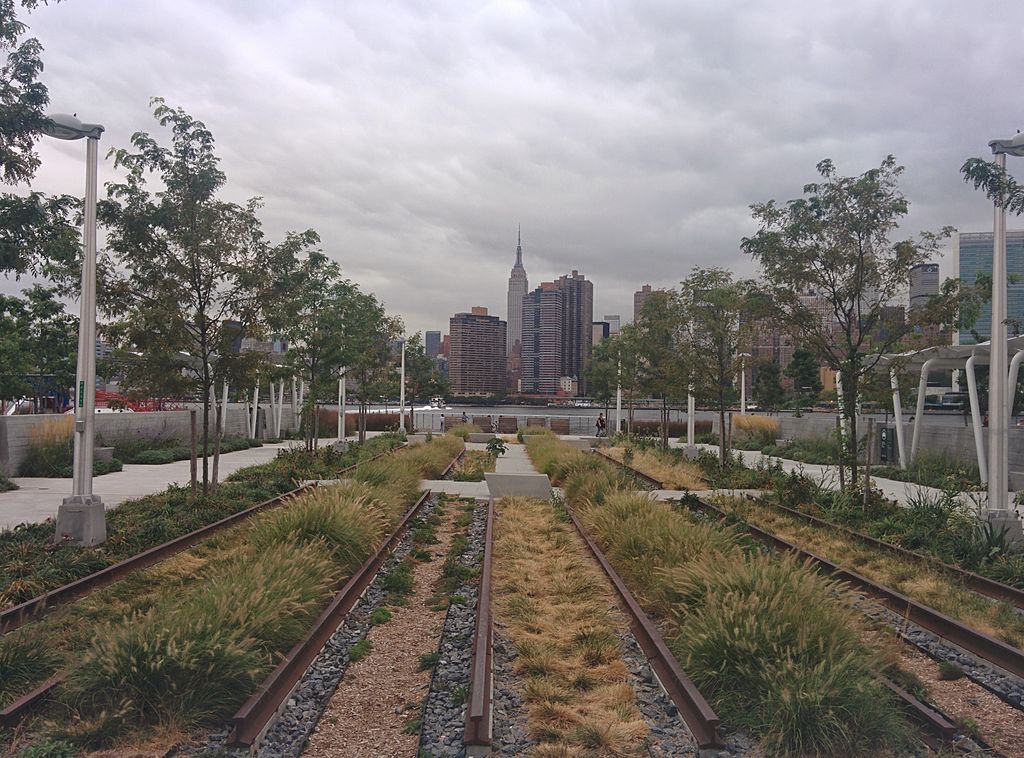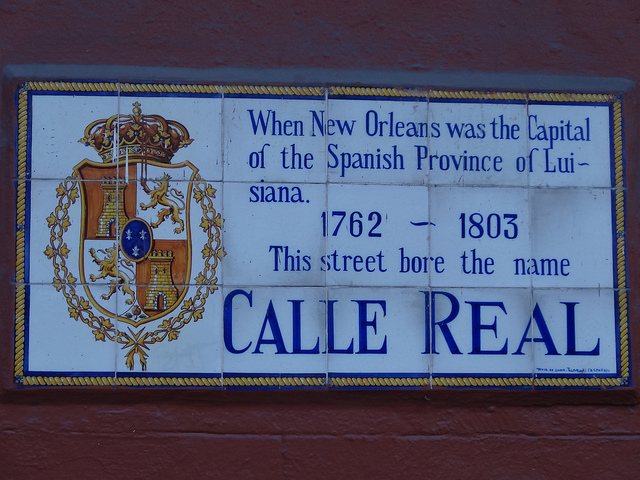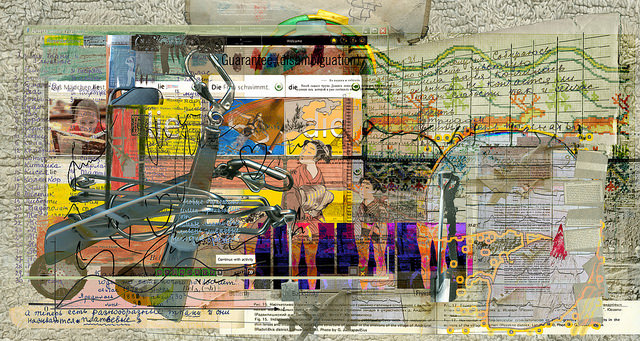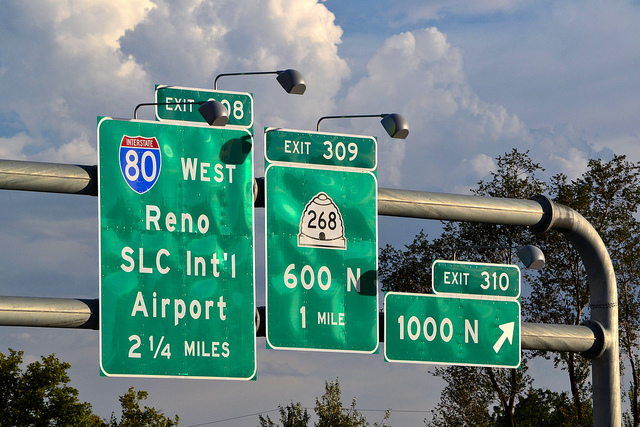Recognising the Rosetta Stones of the Present
Preserving our languages is important, we think, since languages are our communication tools, as well as essential parts of our cultural heritage. Last time we talked about language preservation, and therefore deciphering, with the Rosetta Stone and its counterparts; look how important a scribble they turned out to be! So now, we would like to look to the future, to when the machines take over or we push this world beyond the brink, and consider what reminders of our languages there will be for future archaeologists to discover. What do we have in our current world that would serve as a language tool, that would help decipher multiple languages from a lingua franca of our future? Let’s take a look.
It’s a sign!
Photo via Flickr

Photo via Wikimedia
If the world just stops and our cities are left in ruin, much of the human population wiped out but some of our structures remaining, our languages will still survive. Why? Well, it’s simple, or we could say, it’s a sign. Many airports and train stations around the world have information for travellers both in local languages and in English, and if you go to any culturally diverse city you will find everything from directions to advertising in multiple languages. Doctor’s surgeries, libraries, universities; the wealth of opportunities to retain and (re)learn this world’s languages is actually very promising.
Don’t believe us? Look at Manchester in England. A team from the University of Manchester discovered that there are more than 50 languages on signs displayed all around the city, with the most commonly seen languages being Urdu, Chinese, Arabic and Polish. From NHS posters encouraging smokers to quit, to solicitors advertising their services for immigration, there are numerous sources of the same information being displayed in multiple languages. A plethora of modern Rosetta Stones!

Photo via Flickr
Louisiana
We hear an awful lot in the news at the moment about the US and some of its citizens’ appalling attitudes towards those who were either not born American, or those whose heritage isn’t distinctly white. They say that hope comes in strange places, and perhaps Louisiana’s own history with slavery makes it a very strange place to look for that hope. However, we are hopeful people, so here is where we are taking a hesitant glimpse - at least in terms of language preservation.
In 2012, the Iberia Cultural Resources Association (ICRA) at the El Festival Español de Nueva Iberia placed 12 trilingual plaques around the city to honour its language heritages. These plaques, inscribed in English, French and Spanish, replaced nine similar projects displayed by the ICRA in 2008, and are aimed at marking both the French and Spanish influence on the state throughout it’s history. Perfect Rosetta Stones as well as heritage recognition, then.
Learning a new language? Check out our free placement test to see how your level measures up!
Auschwitz-Birkenau State Museum
Okay, not a happy memorial, but a necessary one. At the Auschwitz Museum, there are numerous plaques dedicated to victims held there, written in their native languages, and what better a lesson could they be for our future generations? Not only do they give the opportunity to interpret the same message in numerous tongues and study languages, but they also teach the importance of what happens when we persecute, why we shouldn’t, and why we should never forget that.
The Rosetta Project
Because the importance of the Rosetta Stone has long been recognised, it makes sense that those of us concerned with preserving our languages would come up with various ways of replicating that principle of one message in multiple languages and giving it a modern twist. The Long Now Foundation have helped produce the Rosetta Disk, a physical accompaniment to the Rosetta Digital Language Archive, storing more than 1000 languages onto 1000 microscopic pages. The message is the Universal Declaration of Human Rights in 327 languages alongside basic lists of vocabulary from a further 719. So if you care about languages and have $1000 to donate to the Long Now Foundation, get your mitts on one of these!

Photo via Flickr
So there we have it. Some fine examples of how our languages may be preserved and actually out-survive those who speak their words, if humanity doesn’t get a grip on itself sometime soon. We wonder what our future generations will think of us!



